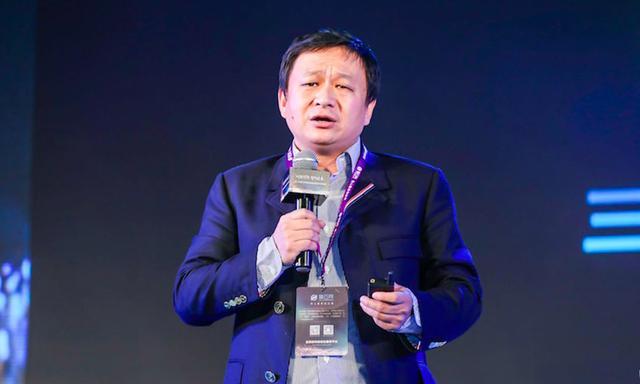The Chinese tech billionaire has grand IPO designs for his African startup, a feat he has pulled off with Beijing Kunlun, Opera and attempted at Grindr.
The second day of July 2020, was chaotic for OPay: A source at the company had leaked information to the press that OPay’s Chinese investors had directed the company to shut down most of its non-fintech verticals.
The decision was made in Beijing, the Chinese city which is seven hours ahead of Lagos. The Nigerian team received the memo by 2 AM local time, according to the source, and by 7 AM, the news was published.
Insiders at the company corroborated this account to TechCabal, disclosing that OPay’s billionaire chairman Yahui Zhou had made the decision to suspend the services.
Internally, after the news went public, OPay’s communications team struggled to control the narrative. Most staff at OPay woke up to find their company trending on Twitter. Former staff were surprised, calling contacts at the fintech startup to understand how services they created could be suspended out of the blues. Speculators assumed the company was going through yet another crisis and may collapse soon.
After six hours, the company finally issued a press release explaining the decision. It quickly paid Twitter influencers to tweet scripted information about the announcement.
The news would trend for the rest of the day. To staff, this was just another day at OPay. But outside, it sparked another round of conversations about what exactly is going on at the company.
What is going on at OPay?
The Nigeria-based fintech company has had a rough 2020. The dual impacts of the ban on passenger motorcycles in Lagos and the outbreak of the COVID-19 pandemic suggest the company is struggling.
Despite these challenges, data available to TechCabal shows OPay’s core payments business has continued to grow. In April, the company claimed it had 5 million monthly active customers and was responsible for over 60% of mobile money transactions in Nigeria.
The company blitzscaled its way to the top of the value chain by way of aggressive growth. It built out a number of verticals to achieve using discounts to gain traction.
Since 2018, Yahui Zhou, OPay’s chairman has been instrumental to the company’s growth plans. Described as “a darling of the Chinese tech world,” he has set ambitious growth targets and committed serious finances to achieve his vision. With a net worth of $1.1 billion, company insiders say Yahui’s grand plan is to list OPay on the stock market.
He has pulled this off twice in the last six years. In 2015, he led Beijing Kunlun Tech Co, a Chinese video game company to the Shenzen Stock Exchange in China. The company raised $214 million when it went public 31 January 2015, turning Yahui into a billionaire with a net worth of $1.7 billion according to Bloomberg.

In 2016, Beijing Kunlun acquired Norwegian browser company, Opera for $1.23 billion. Two years later, Yahui listed Opera on the NASDAQ with an IPO that raised $115 million.
He attempted a similar plan with US dating app, Grindr. Beijing Kunlun bought a majority stake in Grindr for $93 million in 2016. But following pressure from the powerful Committee on Foreign Investment in the United States (CFIUS) over possible Chinese access to sensitive health data on Americans, Yahui was forced to sell the dating app. He made another glorious exit when he sold Grindr in March 2020 for $608 million.
“My investments are early, and we aren’t afraid of failures,” Yahui told Forbes in 2016. “Failures are just a cost companies have to pay for.”
He has the same IPO vision for Nigeria-based OPay.
From the onset, there had been questions around the sustainability of his aggressive strategy in Nigeria. Burning cash in this manner is sometimes a recipe for failure, or at least makes it hard for a company to become profitable over the short term.
In October 2019, TechCabal questioned OPay’s growth and agent figures, enough to force its investors to send a team to tour Nigeria and investigate the claim. The company also moved quickly to introduce a new geolocation feature to find nearby agents.
Regardless of the sustainability question, OPay’s cash burning route worked, allowing it to grow from around 100,000 monthly active users in April 2019 to 5 million a year later. After raising $170 million in 2019, the company allegedly raised extra funding in Q1 2020 and offered equity to important employees.
But while OPay’s fintech business may be doing fine, Yahui stepped up his influence in the company. On April 13, he officially resigned as Chairman of Beijing Kunlun to become full-time CEO of OPay, explaining that the “new crown epidemic in Africa and has brought huge challenges and opportunities.”
Opera did not comment on this story at the time. And in an interview in June, OPay’s Country Manager, Iniabasi Akpan didn’t speak directly to Yahui’s announcement story. “[But One] thing I do know,” Akpan said, “is that we have an active Chairman, a busy Chairman, a hardworking Chairman who supports the business with the entire team that he has to make sure we are achieving our goals.”
“That’s what matters to me,” he added.
Yahui’s approach at the company has however has caused some intrigues.
In its June announcement, OPay announced the suspension of ORide and OExpress. But according to company insiders, the decision to suspend the services was not based on data or any future trend. Usage statistics suggested that both services were doing fine, the sources disclosed.
While ORide was restricted in Lagos, the bike hailing service remained functional in locations like Kano and Ibadan. In the latter city, a rival company, SafeBoda announced, rather joyfully, that it had crossed 100,000 rides in the city nearly a year after it launched. With its earlier discounts and traction, ORide could possibly have been doing more rides per day than SafeBoda.
More so, OPay was on the verge of an expansion to Ghana when the news went public. A small team had been working out of Accra to introduce ORide in the country.
But according to company sources, Yahui downplayed these figures and growth plans. ORide was designed as a payment enabler. But according to former OPay employee, ORide didn’t lead to high payment volume. Instead, it simply brought in users who got sucked into OPay suite of services.
Yet with ORide’s growth rate in Lagos, Yahui saw an opportunity to build a solid bike hailing operation similar to the Indonesian market. The value of Indonesia’s bike hailing market is expected to top $5.6 billion by 2025 with two billion-dollar companies, Go-Jek and Grab, leading the industry.
But once the Lagos government banned passenger motorcycle in February, Yahui’s bike hailing dream became shaky. Any growth outside the city’s 20 million residents was not real growth, he concluded.
ORide was the last of Lagos’ three bike hailing services to make a pivot. It only announced its logistics service, OExpress nearly four months after the ban. Between May and June, the service started gaining some traction. In the last week of June, it fulfilled over 250 orders per day, according to an OPay source.
But Yahui didn’t see a future for the new service. Despite spending millions on bikes, helmets and operations, he suspended the new service with no clear plans on what to do with the bikes.
Entry into E-Commerce
After affirming OPay’s place as a leader in the payments business, Yahui reportedly wants to increase the company’s value prospects by delving into the e-commerce business. In March, the company quietly launched OMall and OTrade.
With the creation of these new e-commerce services, Yahui also imported Chinese competitive values into the company. Internally, there is a competition between key team leads on the same organizational objectives and this is obvious in OPay’s new e-commerce ventures.
In its original communication, both OMall and OTrade are different. The former is a consumer shopping service, a Jumia clone of some sorts. While the latter was designed to help vendors in Nigeria buy products from other vendors including those in China.
But in reality, Yahui reportedly has both services competing with each other. Whichever service records the most growth stays, the other gets absorbed under the former. This sort of experiment is not a typical Nigerian style, especially since it cost money to execute. But for Yahui it’s nothing, a former staff explained. He is using the Chinese method of corporate organisation to drive results at the fintech.
A few months after both services launched, OTrade has gained better traction than OMall. According to insiders, OTrade recorded around $100,000 in revenue, enough for Yahui to reconsider the need for OMall.
Insiders explained to TechCabal that the company used OTrade to understand how Nigeria’s local vendor supply chain works. By June, OPay resolved that while OMall had less value proposition, it had a better brand. OTrade became OMall.
As OPay shuttered its transport verticals, the new plan is to double down on e-commerce. Considering the company’s past approaches with its various verticals, aggressive growth could be the plan.
“Ecommerce is going to happen,” Iniabasi Akpan, the Country Manager of OPay, told TechCabal in June. “And we want to be a big player if not the biggest player for both businesses and consumers.”
By doubling down on e-commerce, OPay would be able to drive more transaction activity on its mobile app. Its reach among the unbanked population and its network of agents, especially in rural areas, could be an advantage.
But how will it pull this is off?
OPay’s e-commerce ambition became slightly complicated after it suspended its OExpress logistics service. Without it, the company has to rely on and integrate with third-party providers. On the OMall app, the service did not promise same-day delivery. “In Lagos, it will take 2 working days to deliver,” OMall’s app store listing stated, “[and] outside of Lagos it will take at least 10 working days to deliver.”
Meanwhile, OPay is not the only company targeting e-commerce. Four of Nigeria’s biggest payments companies, Flutterwave, Paystack, Remita and GT Bank, have recently entered the space. TradeDepot, a four-year-old startup enabling offline commerce represents another formidable competitor for OPay’s business-to-business ambitions.
These companies are financially capable and, excluding TradeDepot, are focused on social commerce. Social commerce is on the rise as more vendors crave visibility for their products and services.
OPay investors and industry stakeholders will be keen to see what the company achieves in the e-commerce space.




















